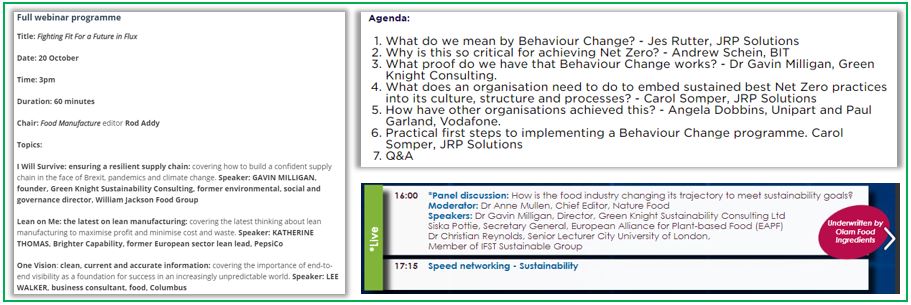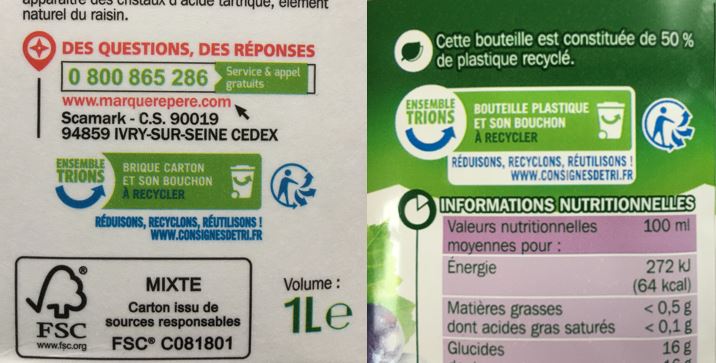Stop Press!
It has been a very long time since my last blog post; the Covid-19 pandemic notwithstanding I’ve been very busy, but mostly with things that are client confidential as getting out and about has been difficult at best and often impossible. Even outside the lockdown periods meetings moved online and non-critical visits to food premises did the same. The new online world has become normal to the extent that pets don’t just wander across the background of Zoom and Teams calls, they are actively introduced. I have ‘met’ a puppy and a kitten in the last couple of weeks although, it must be said, their contributions to the substance of the respective meetings was modest.
Lord Deben, in contrast, made a significant contribution in his opening remarks to the recent strategy session organised by the Biomass Refinery Network, noting that climate change is a symptom, not a cause. Two-way communication between innovators and policy-makers is vital if the bio-economy is to play an effective role in the net-zero transition that the UK and many other countries are seeking to make by 2050, with many businesses setting targets sooner than that. A recent poll of UK consumers found that almost two-thirds were in favour of bringing the UK’s target forward from 2050. It wasn’t evident whether the respondents were prepared to make significant sacrifices in their own lifestyles but other surveys have suggested that a majority are willing to cut back on if not cut out activities linked to high emissions. Behaviour change will be one of many necessary responses by individuals and within organisations, and I have recently contributed to several online panel discussions on the importance of behaviour change to delivering the net-zero transition how the industry generally is adapting to meet evolving sustainability challenges.

Valorisation of waste streams was the most popular area for discussion in a poll of food sector specialists at another (virtual) meeting I attended recently, with a clear link both to the bio-economy and a broader resource-efficiency strategy, and it remains an area of interest to funders of projects in the UK and beyond. As we move towards the endgame of the UK’s departure from the EU, but nowhere near the end of the changes it will bring, the future differences in direction between UK and EU policy will have been on many people’s minds. The future challenges for the agri-food system and society more broadly are global and what drives citizen’s choices rises above political boundaries. In the UK we are used to thinking of the response to plastics as a local issue, but it impacts countries around the world. China, for example, has announced a crackdown on single-use plastics and there is a move to ban plastic sachets or all but food applications. Sometimes the response seems counter-intuitive, with a move towards plastic rather than away. The carbon impact of transporting glass containers is inevitably more significant than lighter-weight plastic. Over 7 years ago, Marks & Spencer moved its pickle range from glass to plastic with a unit weight saving of up to 85% and something similar is happening as I write to a range of tertiary brand fruit juices in France. Laminated (FSC-certified) board-based packs are being replaced by plastic bottles containing 50% recyclate (see the image below).

For established closed-loop systems, this is perhaps better than incinerating mixed-material packaging, if that is what actually happens. Waste packaging collections in France are routinely of mixed materials, as is also the case with general waste at recycling centres which is highly heterogeneous. It is not evident when material is deposited what will happen to it, but the bottlers of Jafaden juices (sold by E Leclerc supermarkets) are clearly getting their recyclate from somewhere. Sentiment around plastics has moved during the pandemic, with PPE especially leading to significant new waste streams. The kick that lockdowns have given to home delivery has also meant that the transport emissions profile as well as waste packaging has not benefited as much as might have been expected from such radical societal change. Net zero will entail far more change than we have seen through 2020, and we have a long way to go even to hit existing carbon budgets in the UK, let alone anything more stretching. It is welcome then, that the Prince of Wales’ Corporate Leaders Group has written to the Prime Minister urging an interim target to accompany net zero by 2050. The Committee on Climate Change (CCC), Chaired of course by Lord Deben, is due to release the UK’s next carbon budget before the end of the year, and policy currently lags behind the necessary reductions in emissions here and elsewhere in the world despite the attention the topic is apparently receiving in legislatures. As the annual boom in consumption that accompanies seasonal festivities is nearly upon us, we should all think twice about what we put on our Christmas lists.